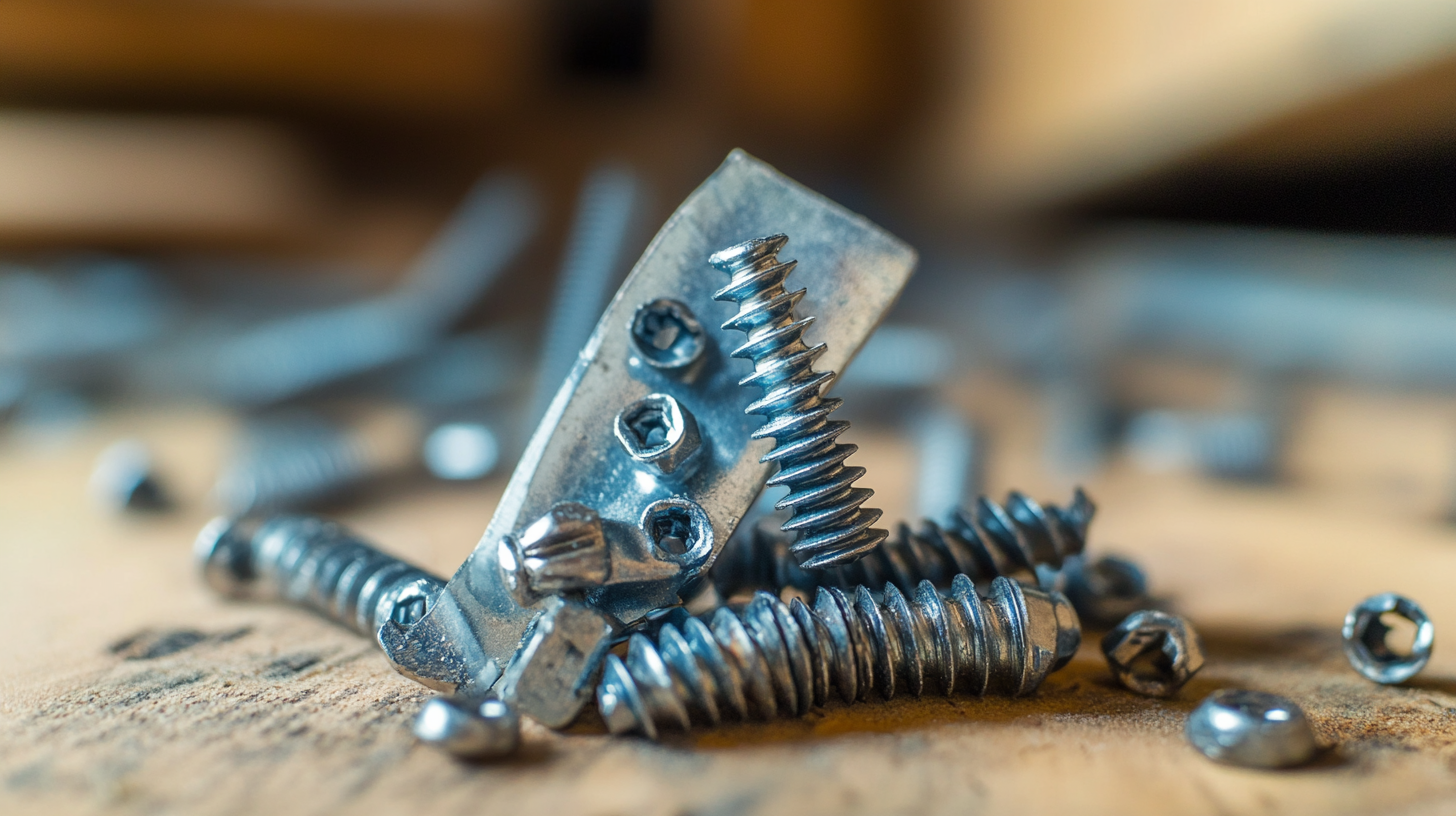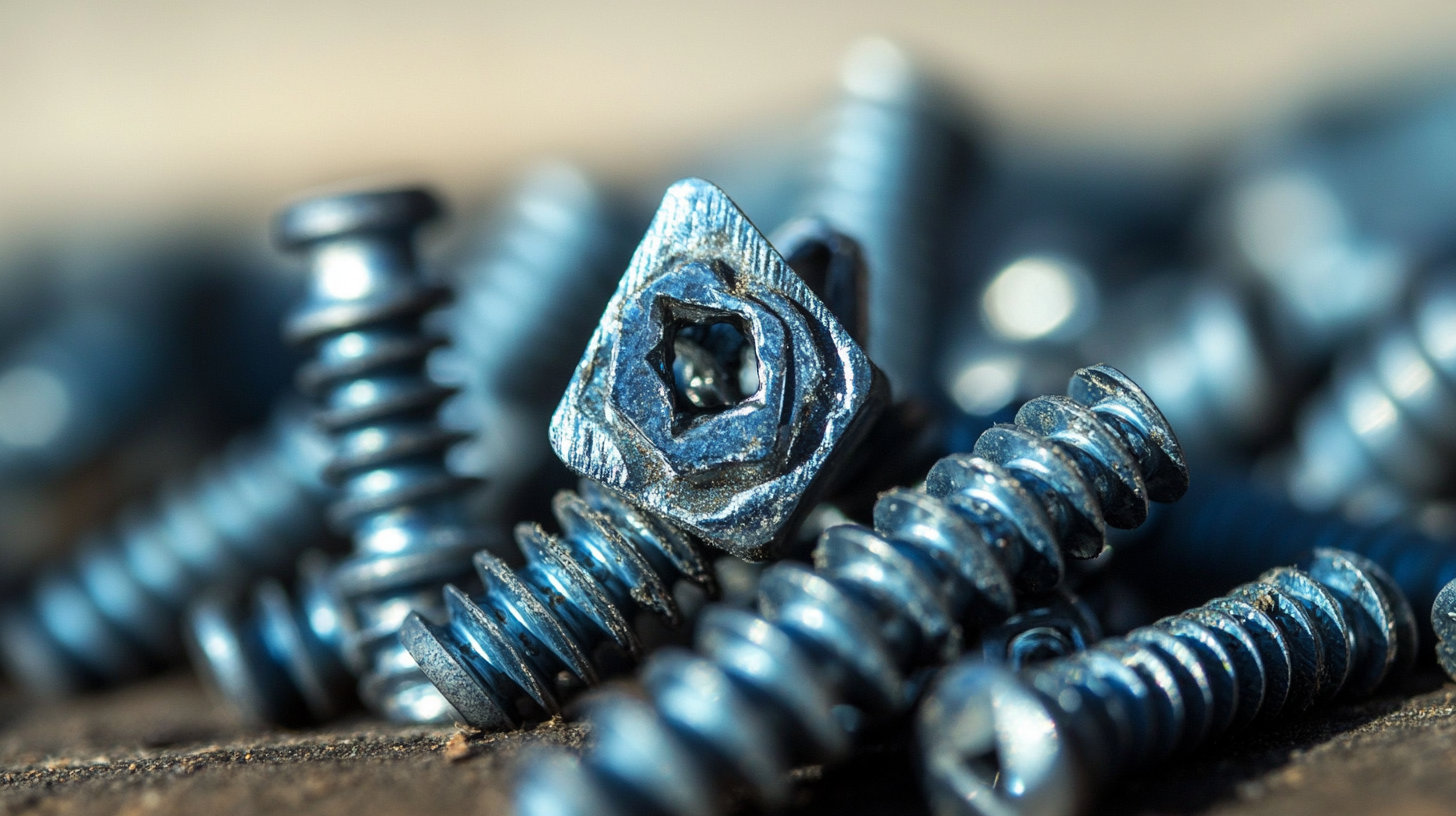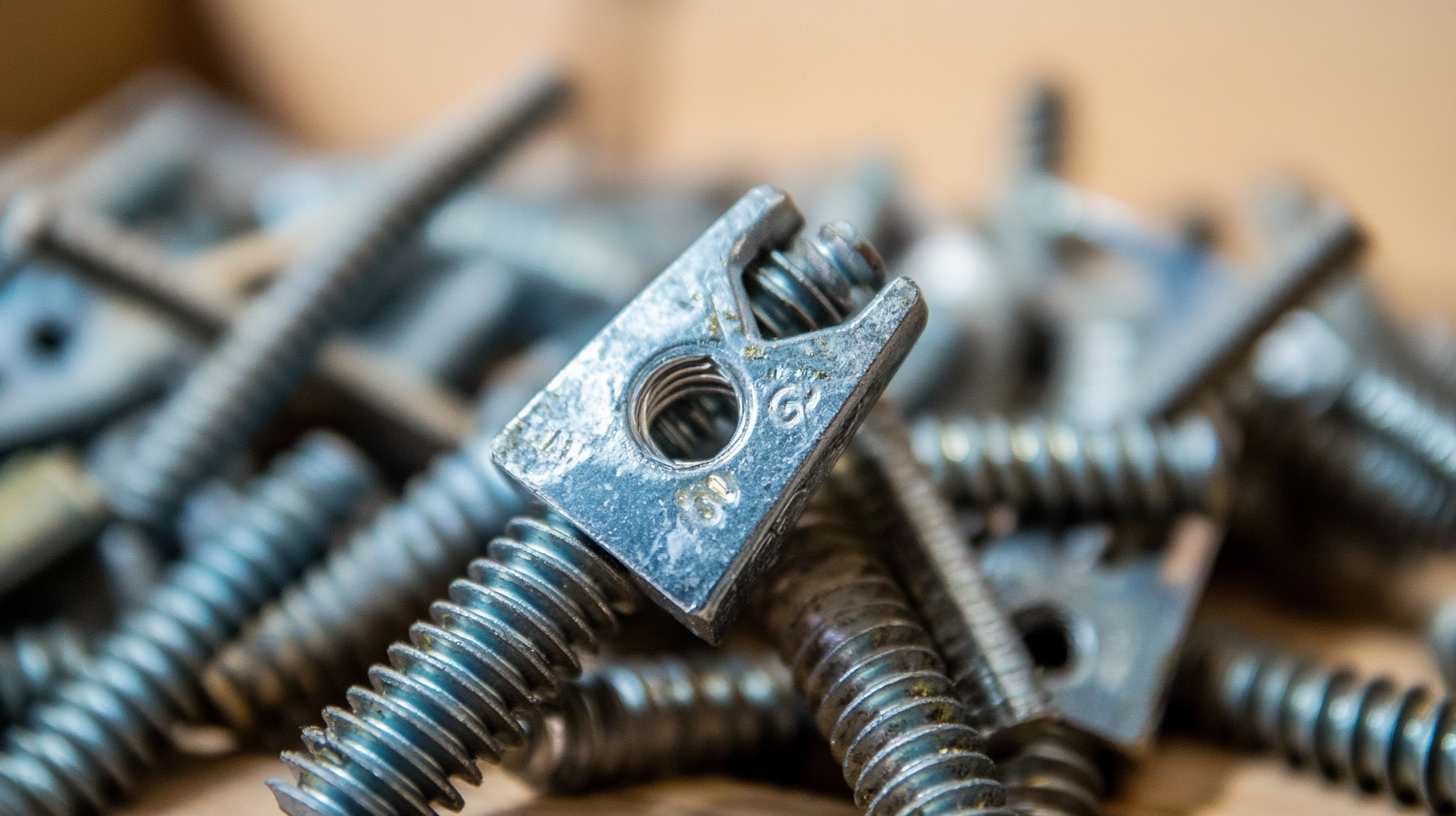
Ultimate Checklist for Choosing the Best Self-Drilling Screws for Your Projects
In the construction and manufacturing industries, the choice of fasteners plays a pivotal role in project success, and Self-Drilling Screws have emerged as a preferred solution due to their convenience and efficiency. According to a report by Freedonia Group, the demand for fasteners in construction is projected to reach $45 billion by 2025, with specialty fasteners such as self-drilling screws gaining a significant market share due to their ability to save time and labor costs.

These screws, designed to create their own holes, provide a unique advantage in various applications, from metal framing to roofing. As more industries embrace the principles of "精工细造,中国制造,服务世界", understanding how to select the right Self-Drilling Screws is essential for maximizing project quality and performance.
This ultimate checklist will guide you through crucial considerations to ensure you choose the best self-drilling screws for your specific needs, enhancing your productivity and ensuring long-lasting results.
Understanding the Importance of Industry Production Standards in Fasteners
When selecting self-drilling screws for your projects, it's crucial to understand the industry's production standards and how they influence fastener performance. According to recent data, the global industrial fasteners market size was estimated at USD 99.63 billion in 2024 and is projected to experience a compound annual growth rate (CAGR) of 4.8% from 2025 to 2030. This growth underscores the importance of adhering to industry standards, ensuring that the fasteners used meet safety and efficiency benchmarks.
Moreover, as the market expands, investments in domestic manufacturing are surging. For instance, the Lansing region is set to benefit from a $77 million investment aimed at launching U.S. manufacturing, generating 200 jobs and enhancing the electric vehicle supply chain in Michigan. This trend emphasizes the significance of reliable fasteners, which are essential components in construction and manufacturing, held together by low-cost but high-quality products including screws and bolts. Keeping abreast of such industry developments can greatly inform your choice of fasteners and ensure the success of your projects.
Ultimate Checklist for Choosing the Best Self-Drilling Screws for Your Projects
| Criteria | Details | Industry Standards | Notes |
|---|---|---|---|
| Material Type | Steel, Stainless Steel, Aluminum | ASTM A307, A325 | Choose based on corrosion resistance needed |
| Head Style | Flat, Hexagonal, Pan | ISO 1478 | Consider the type of drive tool |
| Thread Design | Coarse, Fine, Self-Tapping | ASTM F593 | Choose for material thickness |
| Finish | Zinc-Plated, Black Oxide, Galvanized | ASTM B633 | Impact on durability and appearance |
| Diameter | #8, #10, #12 | ANSI/ASME B18.6.3 | Select based on load requirements |
Different Types of Self-Drilling Screws and Their Applications
When it comes to selecting the right self-drilling screws for your project, understanding the different types and their specific applications is crucial. Self-drilling screws are designed to create their own hole in various materials, significantly reducing installation time. According to a report by Freedonia Group, the global demand for fasteners, including self-drilling screws, is projected to reach $113 billion by 2025, driven by the growth in construction and automotive industries.

There are several types of self-drilling screws, each tailored for distinct materials. For instance, Teck screws are typically used in metal-to-metal applications, boasting a hardened drill point suitable for thick steel. In contrast, wood screws feature a coarse thread that enhances gripping power in wooden substrates. Furthermore, composite screws are gaining popularity due to their versatility, being employed in both wood and composite materials. According to the Industrial Fasteners Institute, selecting the appropriate screw type can enhance structural integrity and efficiency, emphasizing the importance of understanding the application before making a decision.
Ultimately, the choice of self-drilling screws can profoundly impact the success of your project. Different environments may also call for specific coatings; for example, zinc or epoxy coatings provide corrosion resistance, vital for outdoor or coastal applications. Such considerations underline the necessity of thorough research and a solid checklist for professionals aiming to optimize their project outcomes with the right fasteners tailored to their specific needs.
Key Features to Look for in High-Quality Self-Drilling Screws
When it comes to selecting high-quality self-drilling screws for your projects, certain key features should be prioritized to ensure optimal performance and durability. First, consider the material of the screws—look for those made from hardened steel for maximum strength and corrosion resistance. This is crucial, especially when working on outdoor or moisture-prone applications, as it extends the lifespan of the screws significantly.

Additionally, the point design of the screws can greatly affect their performance. Self-drilling screws with sharp, designed tips facilitate easier penetration into various materials, reducing the need for pre-drilling. This not only saves time but also improves accuracy during installation.
Tip: Always pay attention to the coating of the screws. A quality protective coating enhances resistance to rust and wear, making it suitable for a wide range of environments. Investing in screws with superior coatings ensures that your projects maintain integrity over time.
Moreover, the thread design is another aspect to evaluate. Fine threads are ideal for lighter materials, while coarse threads provide better grip in heavier materials. Matching the thread type to your project needs will help ensure a secure hold.
Tip: When testing different types of screws, take note of how they perform under various conditions. This practical insight can help you select the best screws for your specific needs, ensuring enduring results for your DIY ventures.
Evaluating Industry Standards for Material and Coating in Screws
When selecting self-drilling screws for your projects, it is crucial to evaluate the industry standards for material and coating. The choice of material directly impacts the screw's performance, durability, and resistance to various environmental factors. Stainless steel is often favored for exterior applications due to its corrosion-resistant properties, while carbon steel screws might be suitable for indoor projects. Always ensure that the selected material meets the necessary strength and corrosion resistance requirements outlined by industry standards.
The coating of screws also plays a pivotal role in their longevity and functionality. Coatings such as zinc plating, black oxide, or powder coating can enhance the screws' resistance to rust and wear. Understanding the specific application and environmental conditions will help you choose the appropriate coating.
For instance, screws used in marine environments should have a higher grade of corrosion protection compared to those used in a dry indoor setting. By meticulously assessing both the material and coating according to industry standards, you can ensure that your projects are completed with reliable and long-lasting fasteners.
Tips for Selecting the Right Screw Type for Specific Project Needs
When selecting the right self-drilling screws for your project, it’s essential to consider the specific needs of your material and application. Different screws are designed for various purposes; for instance, metal screws feature a sharp tip for penetrating metal without pre-drilling, while wood screws are often designed with a coarse threading to provide better grip in softer materials. Understanding the material you are working with will guide you in choosing the right screw type that ensures lasting durability and performance.
Next, think about the environmental conditions your screws will face. If your project is outdoors or in a moist environment, stainless steel or coated screws can prevent rust and corrosion. Additionally, the length and diameter of the screw are also crucial; longer screws offer better hold but may require a larger pilot hole, whereas shorter screws work well for securing thinner materials. By evaluating these factors in relation to your project, you can make an informed decision that promotes efficiency and structural integrity.
